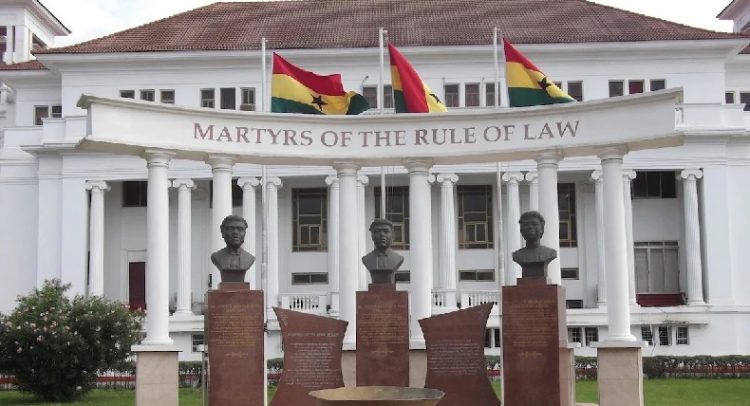A private legal practitioner and plaintiff who sought for the Supreme Court’s interpretation on the voting rights of Deputy Speakers of Parliament when presiding, Justice Abdulai has finally yielded to the pressure of former President John Mahama, returning to the Apex court again seeking review of the ruling.
He was of the view that the judgement of the court “constitutes exceptional circumstances that resulted in the miscarriage of Justice.”
According to his statement of case, there has been a discovery of “new and important matter or evidence which, after the exercise of due diligence, was not within the applicant’s knowledge or could not be produced by him at the time when the decision was given.”
On Wednesday, March 9, 2022, Supreme Court ruled that Deputy Speakers presiding over proceedings in Parliament had the right to vote on matters and to be counted as part of the quorum for decision-making in Parliament.
The decision was greeted with disagreement by the Minority Members of Parliament (MPs), the Speaker of Parliament, Alban Bagbin, as well as the 2020 Presidential Candidate of the National Democratic Congress (NDC), John Dramani Mahama who all asked the petitioner to seek review.
Justice Abdalai in his review application, argues that the Supreme Court, in adjudicating the matter, failed to consider legislative antecedents before making its final judgement.
He stated that due to the obscure nature of the 1992 Constitution relating to the voting rights of Deputy Speakers, it was important for the court to look at legislative antecedents of Articles 102, 104 (1) & (2), 295(2)(a) of the constitution which came out of the 1957, 1960, 1969, and 1979 Constitutions and other relevant laws to ensure fairness and justice.
“This would have revealed to the Ordinary Bench of the Court that the original vote of a Deputy Speaker once existed in our Parliament, but was repealed by NLCD 406 and never returned. It would have also revealed to them that none of our past Constitutions or enactments ever allowed a Deputy Speaker or a person presiding in Parliament to participate in the quorum of Parliament. The failure of the Ordinary Bench to consider the above broader context in interpreting the Constitution, they arrived at a decision that is inconsistent with the intention of the Framers of the 1992 Constitution. This constitutes exceptional circumstance that occasions miscarriage of justice.
The judgment therefore ought to be reviewed,” he argued.
The review application had been scheduled for April 26, 2022 for hearing.
By Vincent Kubi

